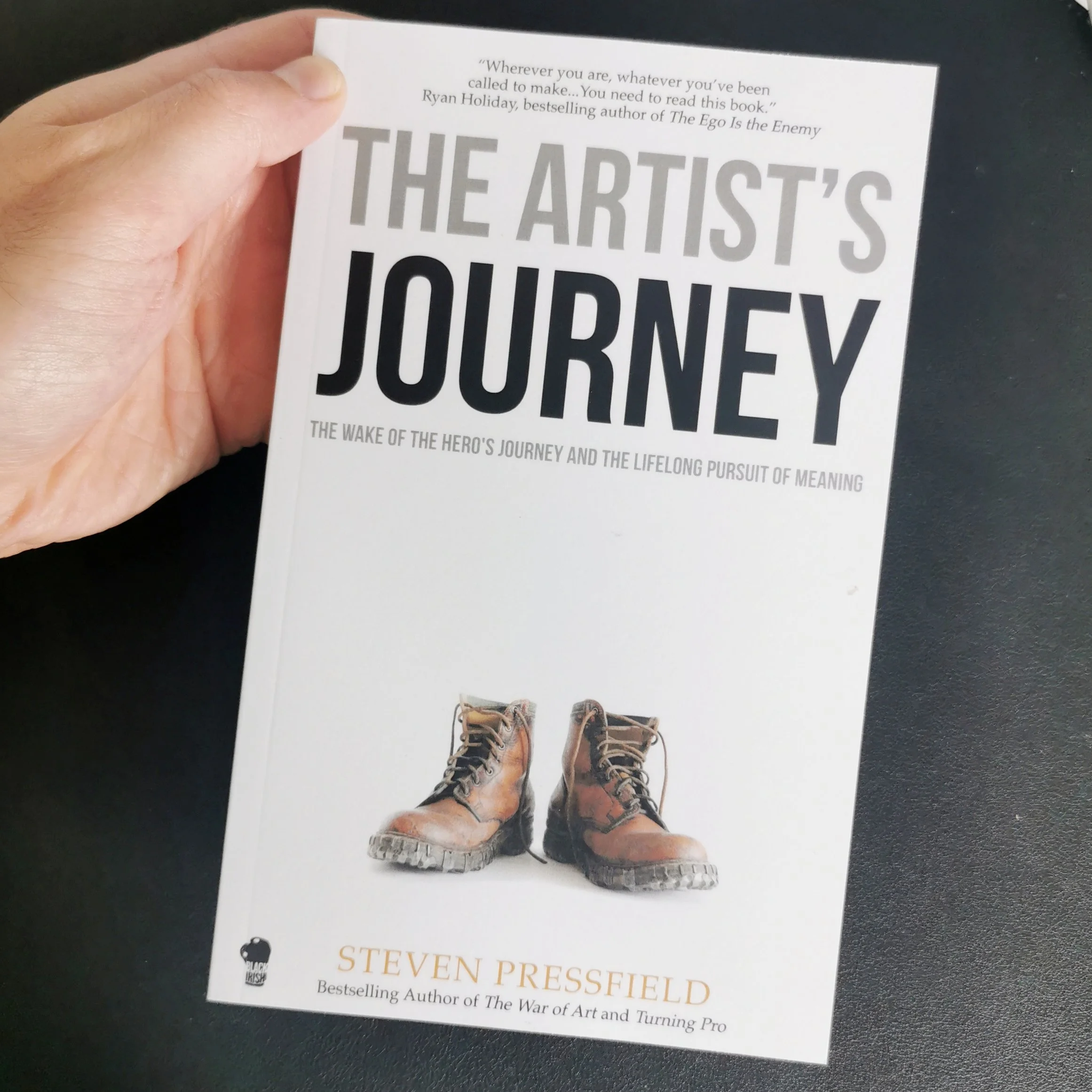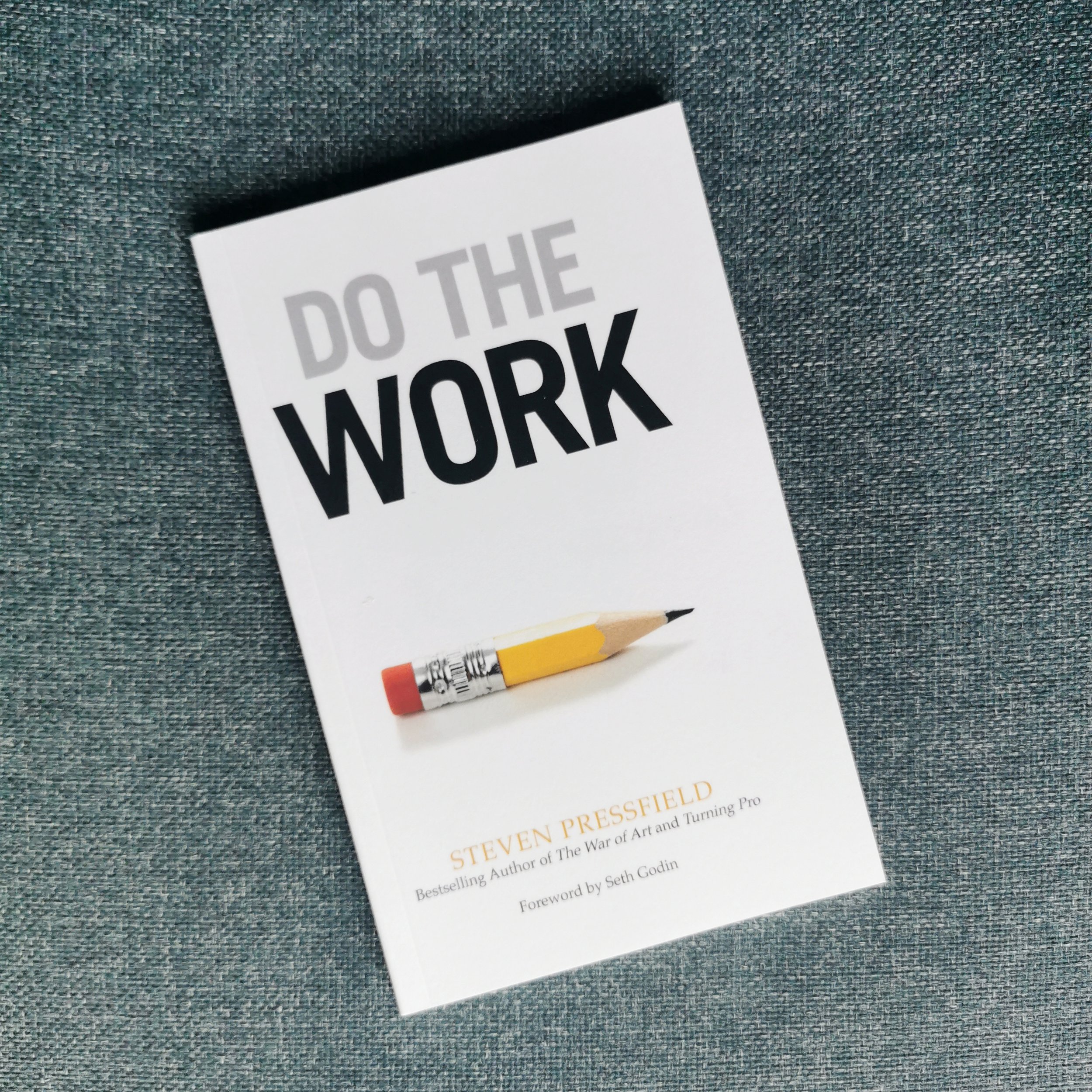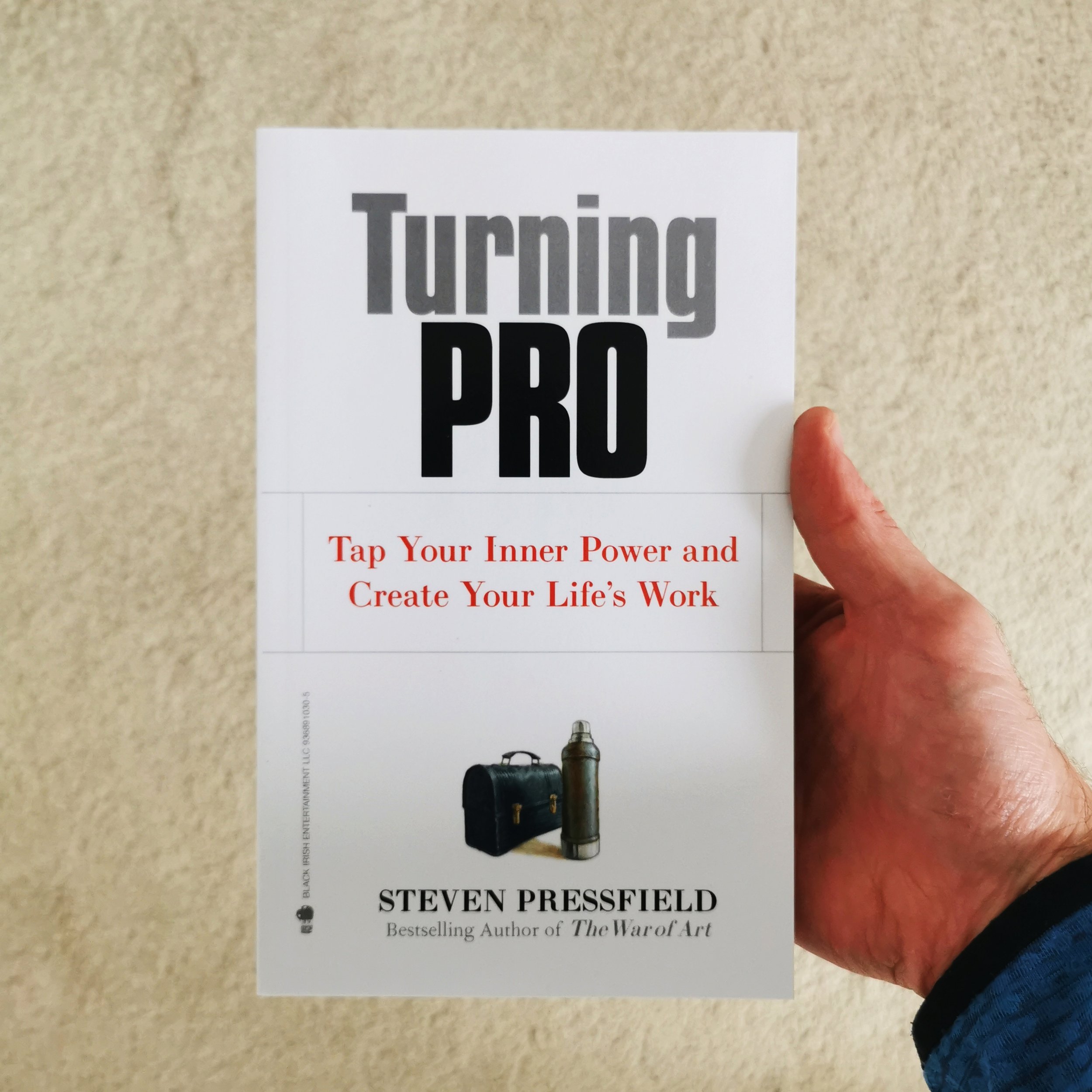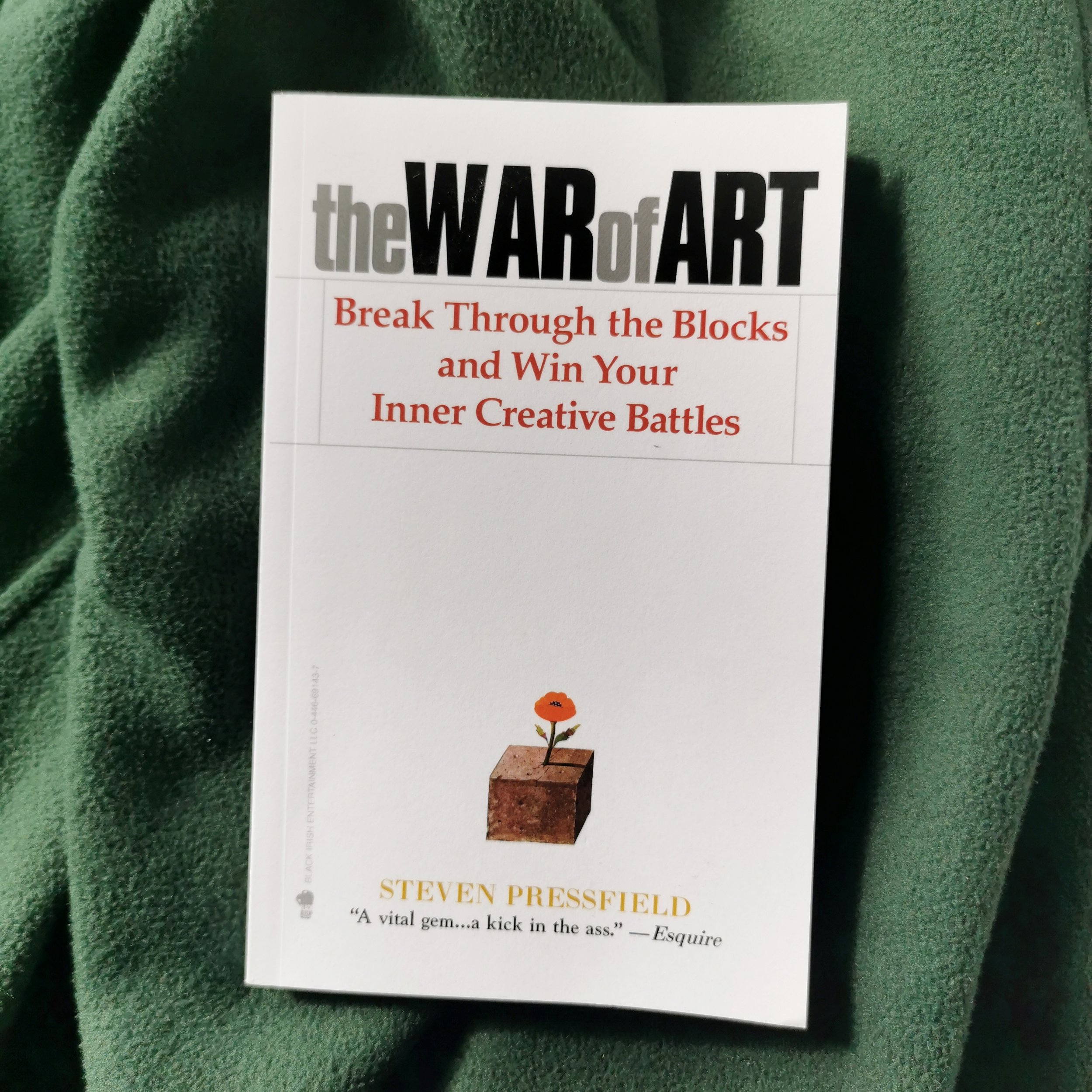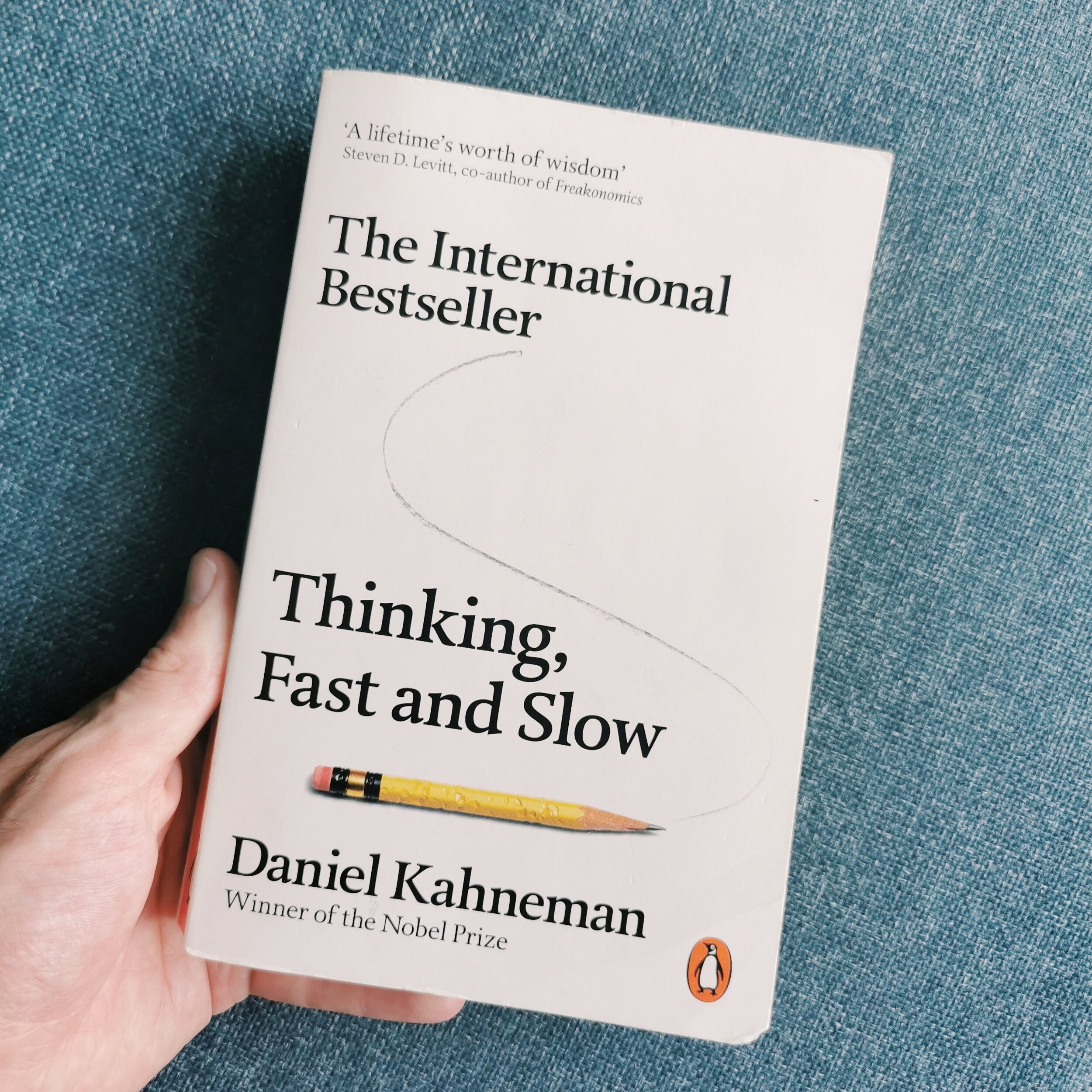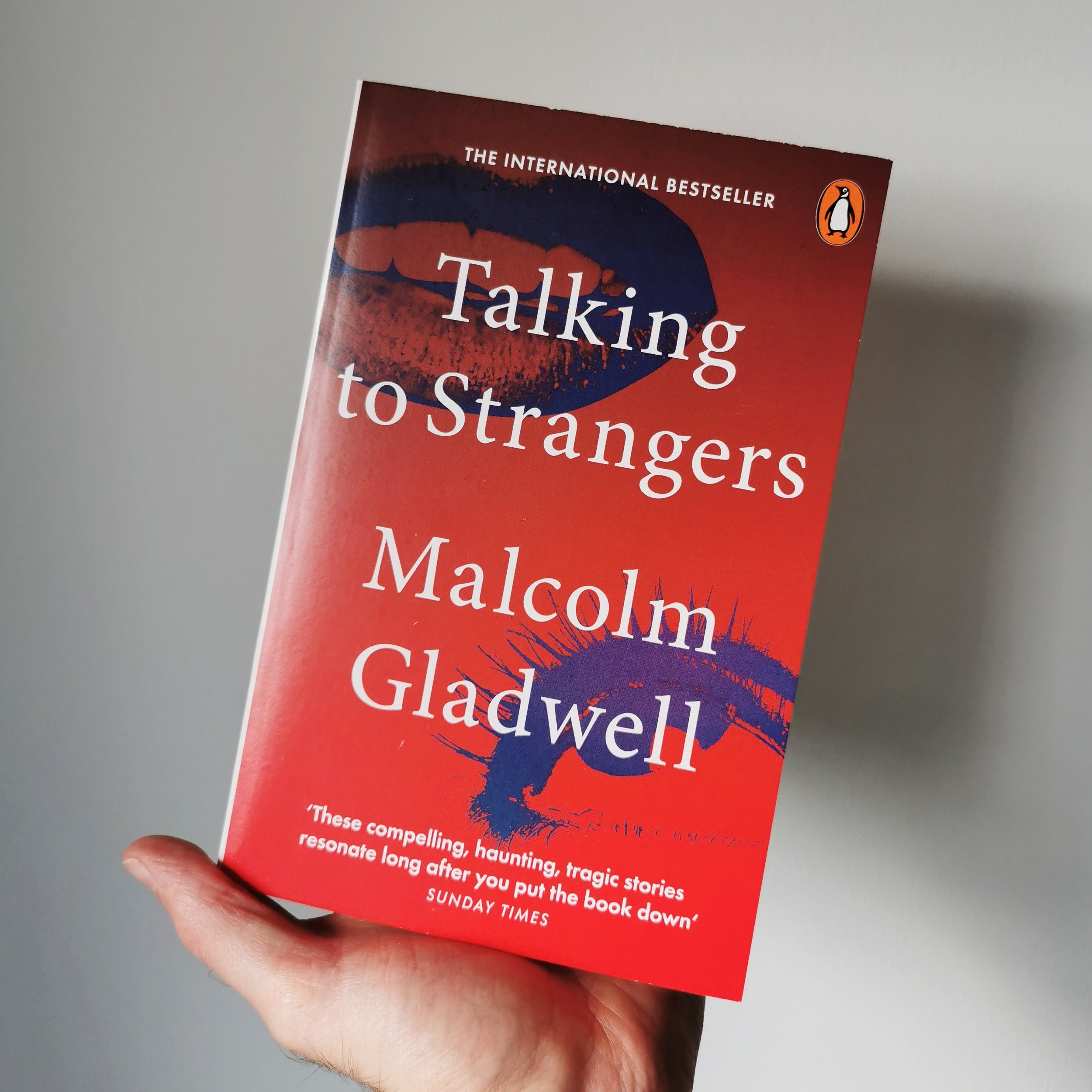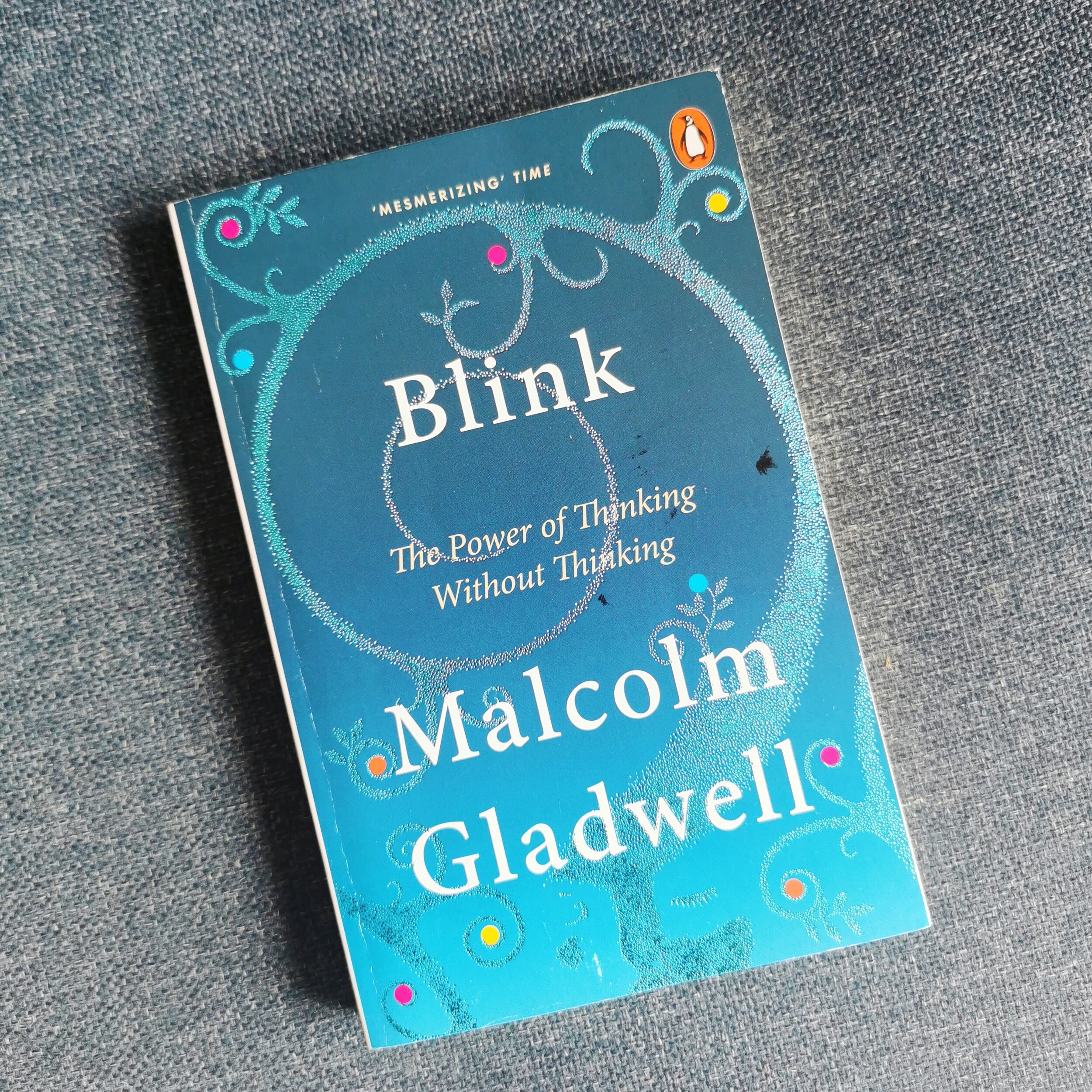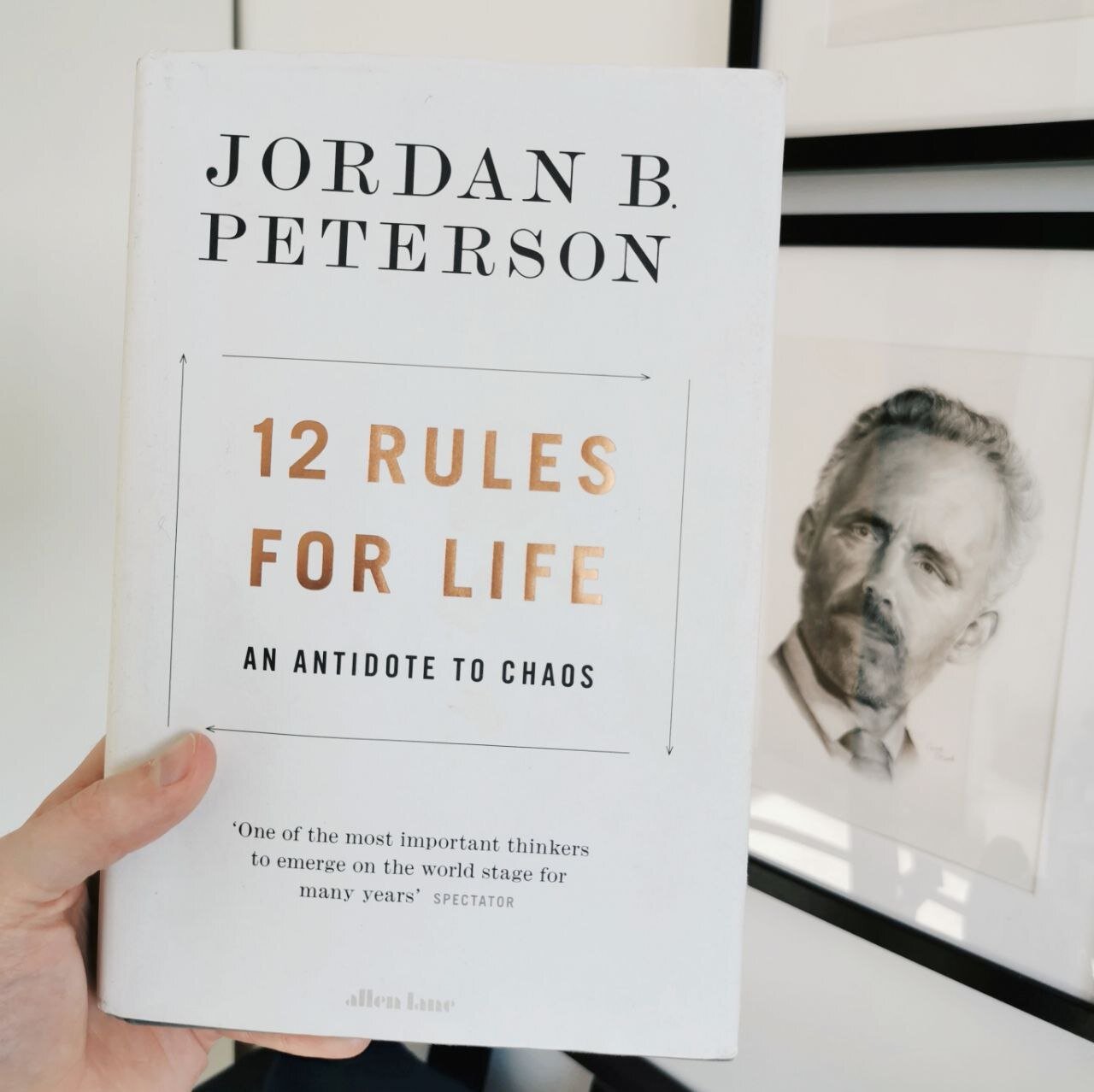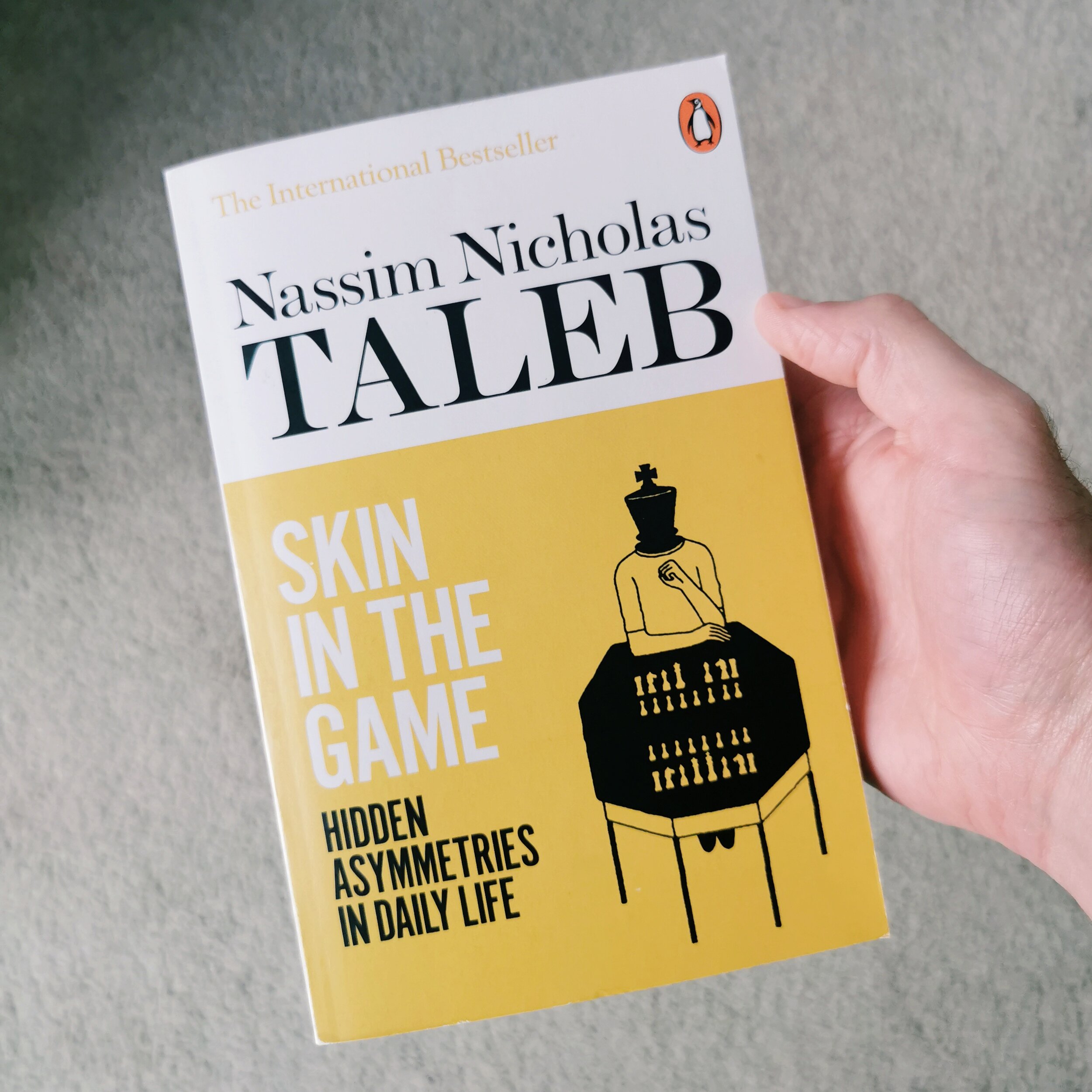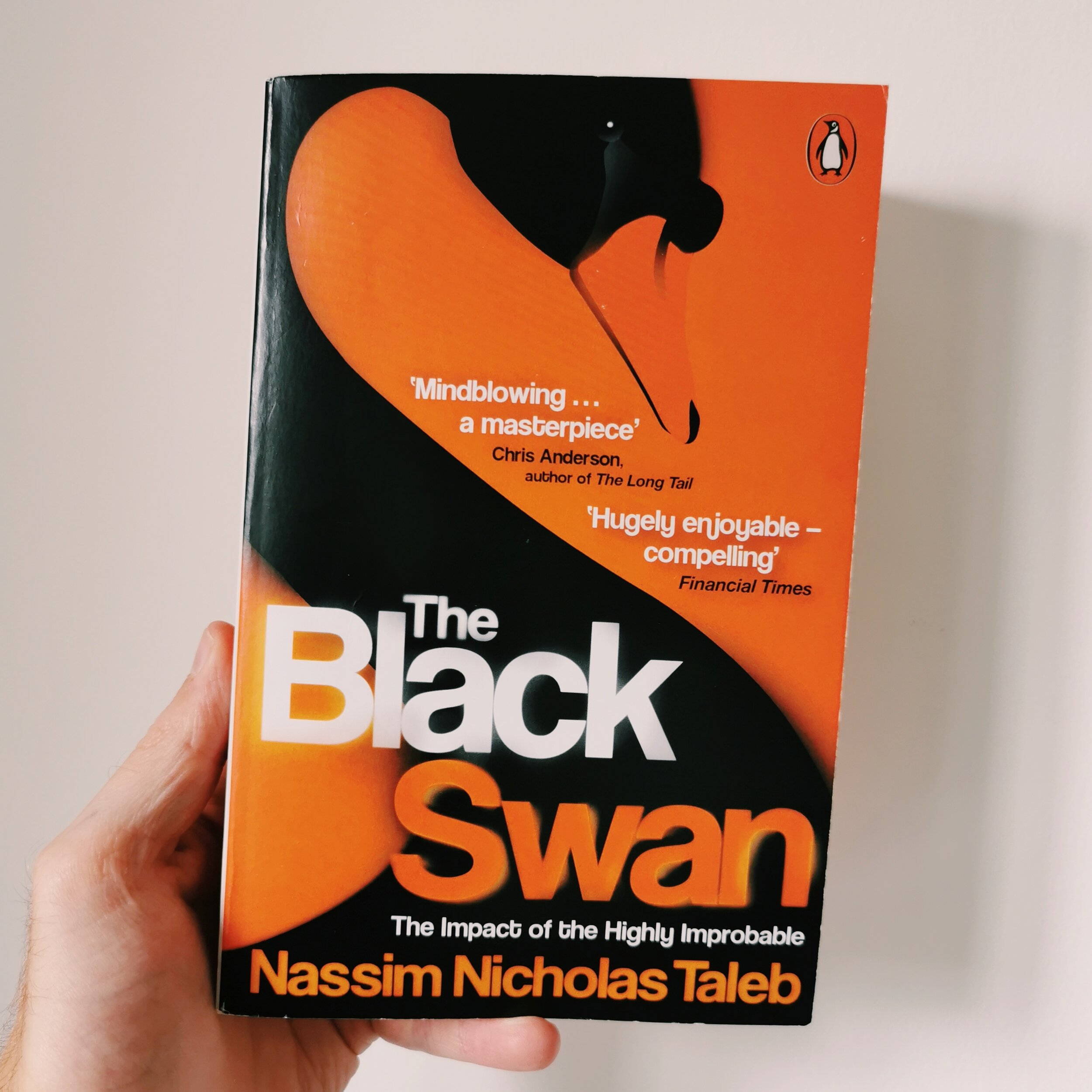Meaning is found in walking the line between order (predictability - when things are going as we'd expect) and chaos (unpredictability - when the future of what's happening now is unclear).
Achieving this involves pushing ourselves towards the highest good that we can imagine, which can be discovered through ancient texts and history, as well as observation of our own conscience.
This requires that we take full responsibility for our own actions, focus on improving them, delay gratification, aiming at the best possible future for ourselves and those around us, whilst focussing on the present moment at each stage along the way.
"Stand up straight with your shoulders back"
Lobsters, a species that has been around for 350 million years (even before dinosaurs), are organised in hierarchies, built at least in part on one lobster's ability to inflict damage to another.
This is established incrementally, based on size, then chemicals shot from one lobster to another (presumably indicative of their fitness/health), their ability to put one another on their backs, and then their ability to harm or kill the other. Dominance can be determined at any of these stages and may not need to be progressed to the next stage.
This is to say that the idea of hierarchies is not a human invention, and certainly not a modern one.
In lobsters, one's perception of their place in the hierarchy is proportional to the amount of serotonin they produce to the point where lobsters exposed to serotonin after a defeat will revert to the posture of readiness to fight again, in spite of the fact that they'd usually curl up and scurry away.
In lobsters and humans, serotonin levels are a correlate for confidence, where low serotonin means decreased confidence, more response to stress and costlier physical preparedness for emergency.
Another harsh reality (again, not a modern or particularly human one) is that of Price's law, or the Matthew Principle, or the Pareto Principle, where those who have more will be given more, and those who have less will have it taken away, leaving a small percentage at the top with most of the goods. They have more freedom to take risks and reap the rewards, they are in less threat because they have to fight less for resources, and females find the males in the hierarchy more attractive.
This certainty can, however, be thrown off by health and lifestyle factors.
There is also the issue of negative feedback loops, where low status leads to decreasing status. For example, someone who is depressed will be less likely to do the things that might alleviate some of the depression (Improving lifestyle, socialising etc), leading to more depression.
In order to get out of this, we can make use of positive feedback loops, perhaps starting by embodying some of the higher status individual's traits. For example, by standing up straight, integrating some of that your darker feelings (e.g. resentment) to the point where you will stand up for yourself, and by facing your problems head on.
"Treat yourself like you are someone you are responsible for helping"
People are less likely to take their own medication consistently than they are to ensure their pet takes their pet's medication consistently. Do people care more about their pet's well-being than their own?
Perhaps it is because we see ourselves as having some autonomy and free will over our choices (including those that make things worse). This is exemplifies in the story of Adam and Eve, where they are told about the downsides of their newfound self-consciousness.
Our experience of the world can be viewed as balancing order (what it's like when things are going as expected, where you're in control, and things are predictable, but in excess can be rigid), and chaos (where things are unpredictable, which can be exciting a lead to new positive things, but can also mean the revelation of new problems), and where meaning can be found where neither order or chaos is lacking or excessive.
Perhaps aiming for that (rather than 'happiness') is something that would allow you to respect yourself, and treat yourself better as a result.
"Make friends with people who want the best for you"
Beware of helping people who do not want to be helped, and instead, choose to spend your time with people who also want things to be better, not worse, unless of course, you also want things to be worse.
"Compare yourself with who you were yesterday, not with who someone else is today"
In any singular activity, you can compare yourself to others, and generally, there will be people who are worse and people who are better.
However, we are not only playing one game. In fact, we are all playing multiple games, which mean you're a father, a husband, an accountant, a football player, along with the other roles you play, to the point where your combination of games forms a unique game that only you are playing.
Therefore, to compare one element of that one element of another person's 'game' can give an inaccurate perspective, and in reality, it is impossible to do a true comparison.
Because what we see if affected by what our aim is (See this video), we should be careful with what we aim at.
We should aim at the highest good that we possibly can, whatever that means to us (even if it means starting small and bargaining with ourselves at first), rather than aiming at a being better at one thing than someone else is at one thing.
In order to do this, we need to have an idea of what is 'good'. We can look to religion and history for ideas put forward by our ancestors, and we can also start to examine our own conscious or taste. What actions are we doing that we know we shouldn't? What activities feel meaningful? What do we resent? What do we love?
"Do not let your children do anything that makes you dislike them"
It is important that parents socialise their children in such a ways that increase the chance that people they're going to be interacting with in the future like them.
This is partially because the children they'll be interacting with around age 3-4 when they start making friends will then become the agents of that socialisation, and if those children don't want them around, they're not going to experience that socialisation, and the subsequent becoming part of society.
Another reason is that if you don't socialise them (i.e. aim to push their behaviour in one direction over another), then you increase the chances that you will resent them, and take that resentment out on them or someone else, in a way that will be less in your control.
Children will spontaneously act in ways that parents deem unacceptable, as they try to make sense of the world and find their limitations. They will also spontaneously act in ways that the parent would like to see replicated.
'Catching' them doing something good and rewarding it will increase the chances that it will be replicated, and punishing them effectively when they do something 'bad' will decrease the chances of them replicating it.
Parents should act as proxies for the real world that their children will grow up in.
"Set your house in perfect order before you criticize the world"
Given the suffering that exists, it is no surprise that people often feel hard-done-by, even sometimes to the extent that they'll seek vengeance on the world at large, sometimes resulting in genocide when taken to the extreme.
But there are other options, as shown by the many people who have come through tough times (perhaps tougher than you or I have), without complete resentment for existence. e.g. Aleksandr Solzenitzen.
We usually don't have enough control to go out a change the world, but we have some control over our own actions, and perhaps if we start to move those in the right direction, or at least stop doing the things we know to be wrong, we might be better equipped to then help our family and friends, and maybe then our community and maybe then the wider society.
"Pursue what is meaningful (not what is expedient)"
It can be easy to question the meaning of most elements of reality, but one things that is difficult to deny the existence of is suffering. So what can we do about it?
We could maximise our pleasure in the moment, but often this will result in long-term downsides. e.g. drinking will be pleasurable in the moment, but lead to a hangover and ill-health.
We should take into account both now and the future, which will inevitably means sacrificing something (at least in potential) in the present for an expected return down the line.
Ancient wisdom shows instances of this where sacrifices were made in action without much understanding around how that would affect the outcome (sacrificing a lamb for God's blessing), but the idea was still there.
This also manifested in the instance of excess food, for example, where giving some away now could mean that person might return the favour when they have enough and you don't.
So what sacrifice should we make? Perhaps we can assume that if we are not getting the outcomes that we want, then the sacrifices aren't correct or enough.
Meaning is found where the sacrifices you're making are creating sufficient order and warding off excessive chaos, keeping one foot in each, as opposed to expedience which isn't meaningful.
"Tell the truth — or, at least, don’t lie"
In order to navigate the world properly, having an accurate (as possible) picture of what is going on is advantageous. When we lie, we distort that view of reality, and more than that, we encourage self-distrust in our ability to accurately assess what's going on.
Small lies often turn into bigger lies, as the small lies require more lies to back them up.
"Assume that the person you are listening to might know something you don’t"
There are various types of conversations, each with different goals.
One is a conversation about the past, as part of therapy for example, where the aim is to distil the information, ensure you have it correct, and taking the useful information into informing future decisions. That is the purpose of memory.
Another type of conversation is with yourself - thinking - where you create 2 or more different viewpoints, and allow them to battle out ideas in your head, as a means to seeing what you think is best.
If this is difficult, you can discuss these ideas with someone else, not only in order to hear their viewpoint, but also to see how they react to yours. Generally, if your ideas seem to be veering from the norm, it's worth considering that you might be wrong, so be sure that you've though your opinion through thoroughly.
When listening to someone, it can be useful to summarise their viewpoint, repeat it back to them, asking for confirmation that it is an accurate depiction of their viewpoint. This can give them a more consolidated version of their ideas, but also forces you to understand them better, ensuring your reacting to their actual opinion, whether in agreement or disagreement.
Their are also more dysfunctional conversations, where each person is simply waiting for their turn to speak, so that they can assert why they're right, or assert their dominance.
We outsource some of our sanity to society. By only relying on our own interpretation of the world, we can get lost in that, so seeing other react to our opinions and actions acts as another form of feedback.
A lecture is another form of conversation, and although it may seem like a one-way conversation, it is useful for the lecturer to speak as if to each individual, as well as being observant of their reactions.
Another type of conversations is that of "active philosophy", where 2 people of good-will are trying to explore ideas, with the aim of finding a better way of acting in the world.
"Be precise in your speech"
We see things in the world as they are useful to us. e.g. We don't see the atomic structure of a chair. We see it as something to sit on.
This is affected by our goals, both short-term and long-term. e.g. If our goal is to reach something on the top shelf, that same chair may become something to stand on, rather than sit on.
Given how much of what we see in the world is affected by our goals, it is important that we have a clear idea of those goals, and that we have them properly aligned. Otherwise, there is too much chaos, and we don't know how to act.
Putting these goals/aims/objectives into words makes them more concrete, as well as communicable to others, allowing them to be subject to feedback and refinement.
Because our goals are necessarily intertwined with others' (not least those of your spouse, family and friends), and that those goals will often be in conflict, it is important to have conversations, often difficult ones, so that you can align your goals. Having these conversations early and often helps avoid them growing into unsolvable problems.
"Do not bother children when they are skate-boarding"
As humans, we seek out an optimal level of danger/chaos, a level where we're confident in our abilities, but still pushing for improvement. By creating a world where there is no danger, we limit our ability for growth.
Seeing the human race as a plague to the earth or similar often leads to self-destruction, or if taken to the extreme, societally destructive outcomes, as evidenced by the columbine shooters, for example.
The downsides of hierarchy are often emphasised, without acknowledgement of the necessity, inevitability, and advantages of hierarchical structures. This often results in disastrous attempts to demolish hierarchy and in pursuit of complete equality. Historically, this has led to dier unintended consequences, including millions of deaths.
One example of misunderstanding around this is the differences in incomes and positions in companies between men and women. It is often seen through the reductionist lens of being caused by unjust use of power or discrimination, ignoring the role of women's choices to (understandably) chose improved family life and enjoyment.
Women tend to choose mates that are above equal to or above them in the their position in the hierarchy, and men are the opposite (although they tend to choose younger mates). This creates a scenario where men compete with each other, and women select from the results of that competition.
Men and women differ in personality traits. Women tend to be less assertive, and can often benefit from assertiveness training to ensure they're not getting taken advantage of. It is important for men to be able to manage their propensity for hierarchy competition, by being able to take things lightly at times, and put up with the teasing and joking that can be characteristic of male-to-male interactions.
"Pet a cat when you encounter one on the street"
The inevitable suffering of life can make it tempting to wallow in self-pity and disgust for the injustice. In this case, thinking doesn't help. There will always be bad things to think about. What can help is to notice the positive things when they present themselves, shortening your time horizon to the present, whilst your sights on the hopeful future.
